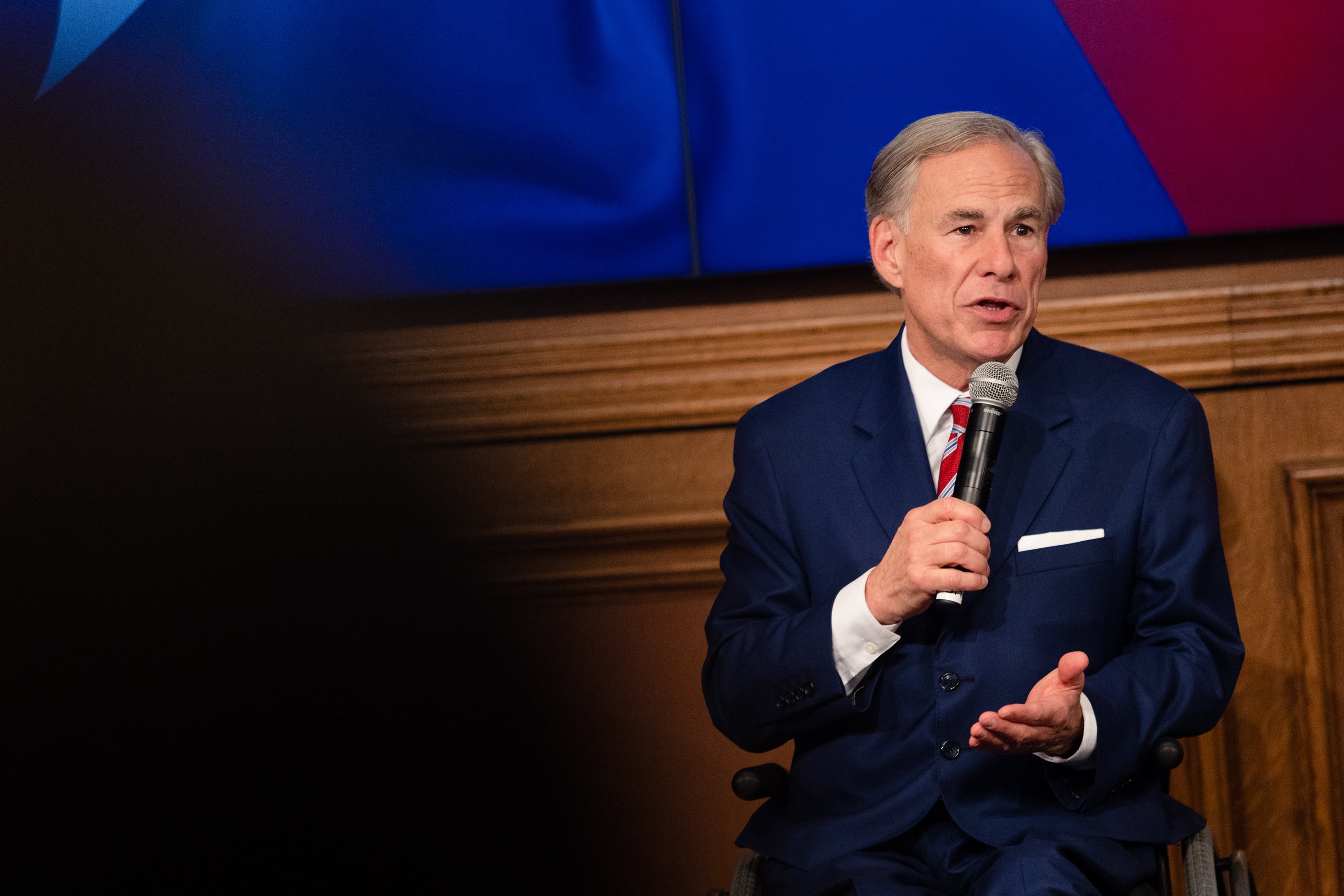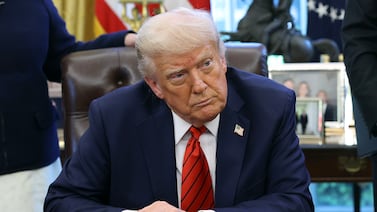Votebeat is a nonprofit news organization reporting on voting access and election administration across the U.S. Sign up for Votebeat Texas’ free newsletter here.
Some Democrats are demanding that Texas Gov. Greg Abbott call a special election to fill the vacancy left in the Houston-area 18th Congressional District and threatening legal action if he doesn’t.
The congressional seat has been vacant for about a month following the death of U.S. Rep. Sylvester Turner. Turner, a Democrat, took office in January.
Earlier this week, Harris County Attorney Christian Menefee and U.S. House Minority Leader Hakeem Jeffries, both Democrats, said they’d sue Abbott if he didn’t act.
Menefee, who plans to run for the seat, said Abbott’s lack of action in weeks is “suppression” and the lack of representation of the heavily Democratic district would disenfranchise a community made up predominantly of people of color.
What does Texas law say about vacancies in congressional districts?
By law, the governor is the one with the authority to call for an election. He could decide to order the election during the next uniform election, in November of this year, or he could order a special election. If he orders a special election, then it must happen within two months of its announcement.
However, there’s no deadline for the governor to call a special election.
Brandon Rottinghaus, a political science professor at the University of Houston, has looked into the governor’s approach to these issues in the past.
Typically, Abbott has called an election within two weeks to about two months after the member either leaves or passes away, Rottinghaus said. Those elections happened about 80 to 120 days from the time that the election was called.
“We are still within the range of when he has in the past called for an election after the seat has become vacant,” Rottinghaus said and added that Abbott could still do so in the coming weeks.
And if he doesn’t call for an election at all?
Then candidates would have to wait until November of 2026 to run.
Why does it matter?
Because the constituents in that district now don’t have a representative advocating for them in Washington.
There are political reasons, too. The Democratic vacancy in Congress gives Republicans, who hold a narrow majority in the U.S. House, some cushion, Rottinghaus said. “It’s possible that the governor is looking at the whole chess board and sees that delaying this election helps Republicans in DC,” he said.
Back in Texas, although there’s a vacancy, constituents still have access to the congressional district offices and staffers that can connect them to government officials and help answer questions for them.
“But having a member in that seat is the most important thing, because they’re the ones who can pick up the phone and get things done. That’s critical,” Rottinghaus said.
What about the potential lawsuits?
Menefee and the U.S. House Minority Leader Hakeem Jeffries are threatening legal action against Abbott if he doesn’t move to call an election.
But what could they sue Abbott over? Chad Dunn, who’s been an election lawyer in Texas for more than 20 years, mainly representing Democrats, told me they could seek a judicial order that says the election has to be called.
However, the law doesn’t give any type of deadlines for the governor to call an election, and Texas hasn’t — at least in recent history — been in a position where the governor doesn’t call for one and leaves a congressional seat empty.
“Courts haven’t ruled on the question of what’s required under state or federal law in terms to call this election,” Dunn said.
Still, Dunn said, constitutional law says the federal government can’t be left dangling per the whims of state officials. “Imagine if a certain number of governors refused to call elections for any of its federal officers, it could conceivably prevent Congress from convening if enough states were to engage in the effort.”
It’s unclear whether a federal court could order the governor to call the election. “But the plaintiffs would have good arguments,” he said.
Natalia Contreras covers election administration and voting access for Votebeat in partnership with the Texas Tribune. She is based in Corpus Christi. Contact Natalia at ncontreras@votebeat.org






